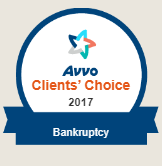Many California consumers are struggling with ever-escalating amounts of debt. At the same time, many of them are reluctant to consider personal bankruptcy as an option. People can be afraid that bankruptcy may lead to tremendous financial damage that is difficult to recover from. As a result, they may look toward alternatives like debt consolidation to lower their monthly payments. However, these options can also take a toll on a person’s credit report without necessarily providing the level of relief that people can obtain through a Chapter 13 bankruptcy.
Chapter 13 bankruptcy enables people to pay their way out of debt without losing their home and other assets. While Chapter 7 bankruptcy may provide more complete debt relief, people have to relinquish their non-exempt assets which are then sold to repay creditors. In addition, some people may not be eligible to file for Chapter 7 due to its income limitations. Instead, people work to pay off their debts during a period of three or five years.
This sounds similar to debt consolidation, which brings together multiple outstanding debts into one monthly bill that is more affordable than the collection of payments people currently owe. Sometimes people may take out a new loan, while in other cases they may use a balance transfer credit score. Both of these may require fairly good to excellent credit. There are other debt-repair services, but these may require a negotiated payoff of outstanding debt and can lead to further credit score downgrades.
There are a number of reasons why people may opt for a particular choice, depending on how much they owe and the choices available due to their current credit score. A bankruptcy attorney can provide advice and guidance on the actions that people can take to achieve debt relief.



